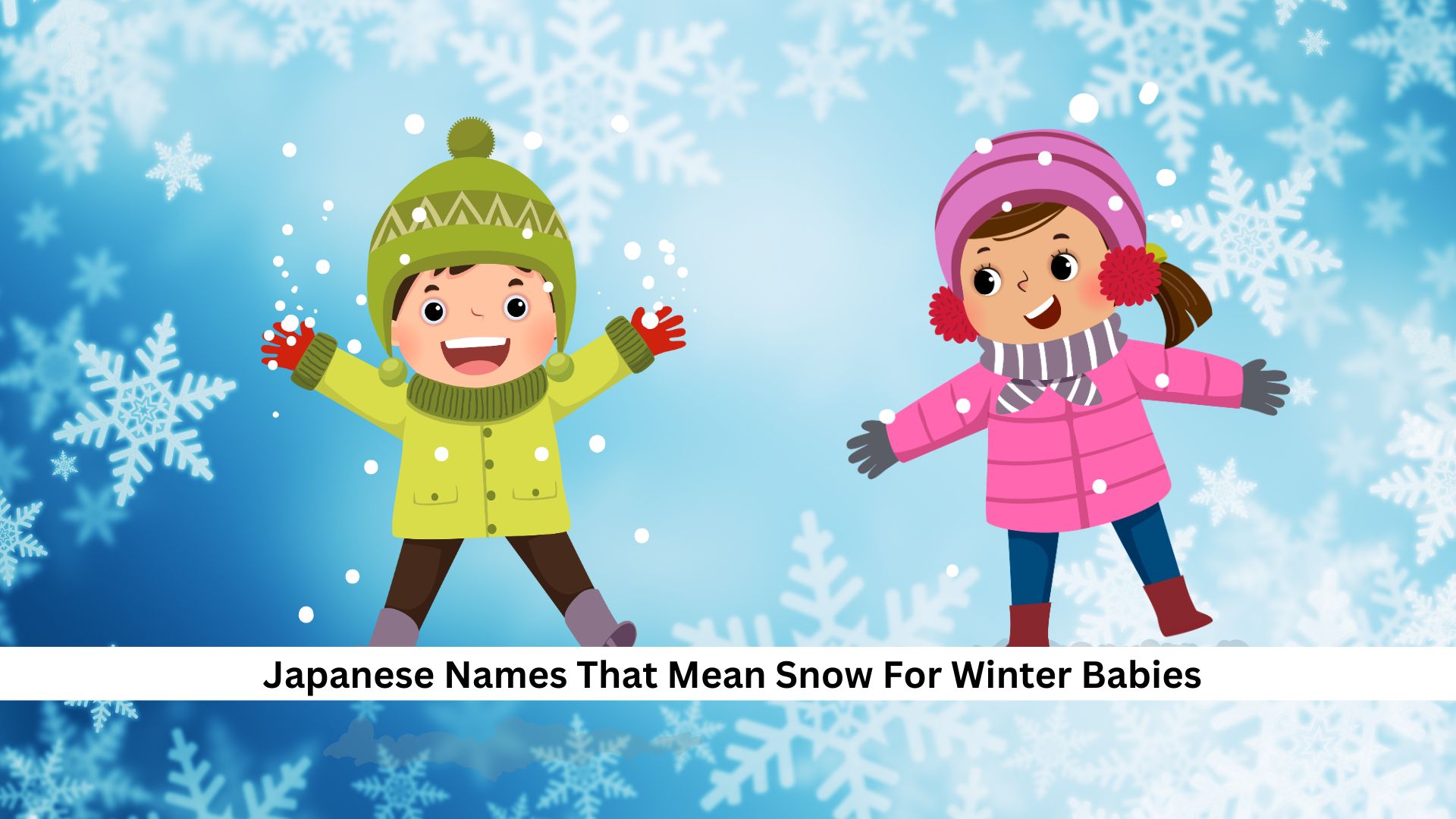When we look into the ‘100+ Amazing Japanese Names That Mean Snow For Winter Babies,’ we’re really diving into Japanese culture’s deep, rich meanings. Each name is more than just a way to identify someone; it represents hopes and dreams for that child’s future. These names often symbolize things like purity, new beginnings, and the quiet beauty of snow. We can see how these names might shape a child’s identity by understanding where they come from and what they mean.
Japanese Names Meaning Snow for Winter Babies
Boy Names That Mean Snow
If you’re looking for a special name for your winter-born boy, consider these Japanese names inspired by snow. Each one is not just a name but also a story and a wish. These names are more than just words; they carry deep meanings and connections to the beauty of nature.
- Yuki (雪) – “Snow,” directly means snow, symbolizing purity and cold beauty.
- Yukio (雪雄) – “Snow hero,” combining “yuki” meaning snow, and “o” meaning hero, symbolizing a heroic figure associated with snow.
- Yukito (雪人) – “Snow person,” combining “yuki” meaning snow, and “to” meaning person, symbolizing someone connected to snow.
- Yukihisa (雪久) – “Eternal snow,” combining “yuki” meaning snow, and “hisa” meaning eternal, symbolizing everlasting snow.
- Yukinobu (雪信) – “Faithful snow,” combining “yuki” meaning snow, and “nobu” meaning faithful, symbolizing steadfastness like snow.
- Yukimori (雪森) – “Snow forest,” combining “yuki” meaning snow, and “mori” meaning forest, symbolizing a forest covered in snow.
- Yukikazu (雪和) – “Harmonious snow,” combining “yuki” meaning snow, and “kazu” meaning harmonious, symbolizing peace and harmony in snow.
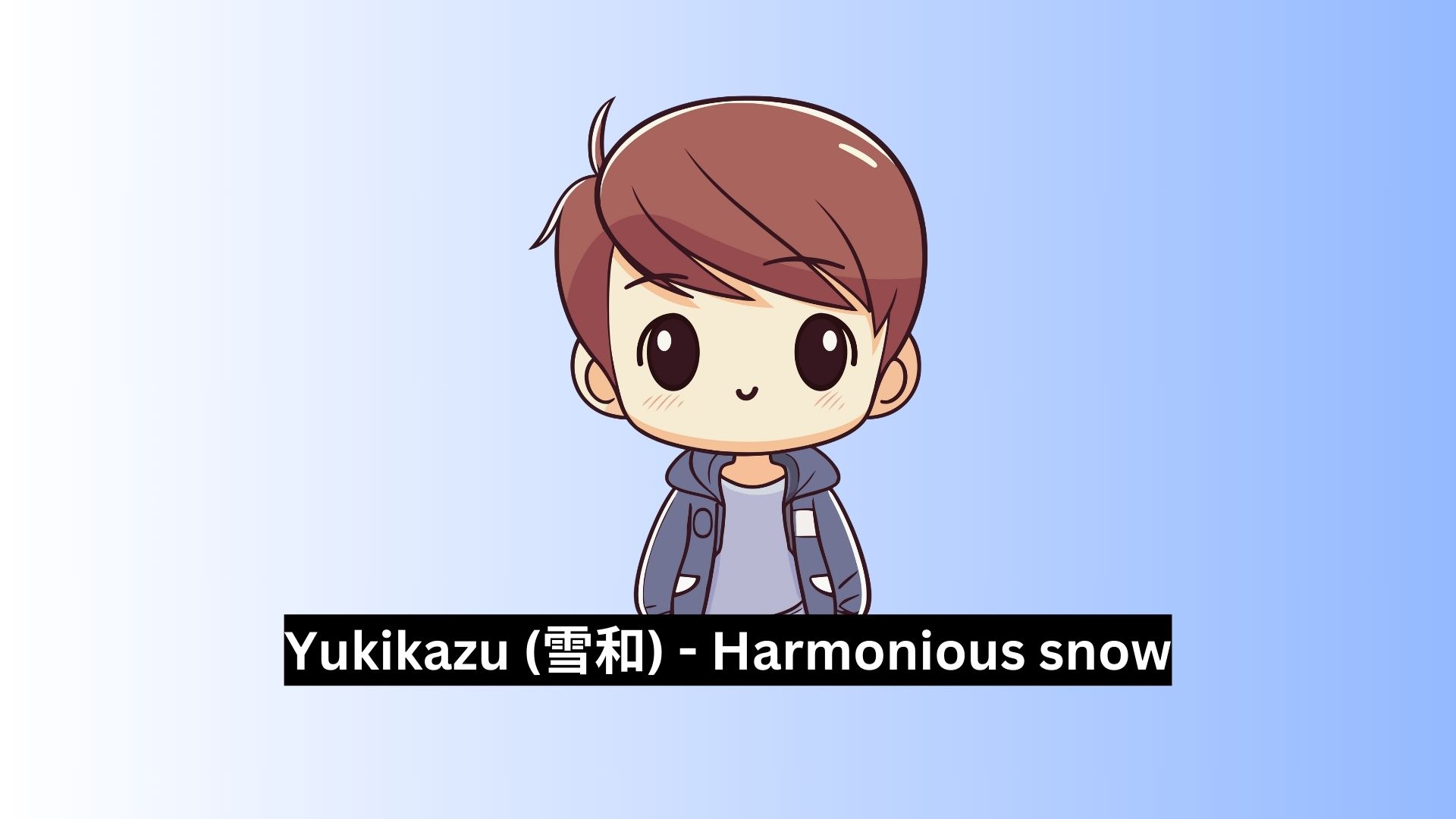
- Yukitomo (雪友) – “Snow friend,” combining “yuki” meaning snow, and “tomo” meaning friend, symbolizing a friend connected by snow.
- Yukiteru (雪照) – “Illuminated snow,” combining “yuki” meaning snow, and “teru” meaning illuminated, symbolizing the brightness of the snow.
- Yukifumi (雪文) – “Snow writing,” combining “yuki” meaning snow, and “fumi” meaning writing, symbolizing writing about or in the snow.
- Yukitaka (雪貴) – “Precious snow,” combining “yuki” meaning snow, and “taka” meaning precious, symbolizing the value of snow.
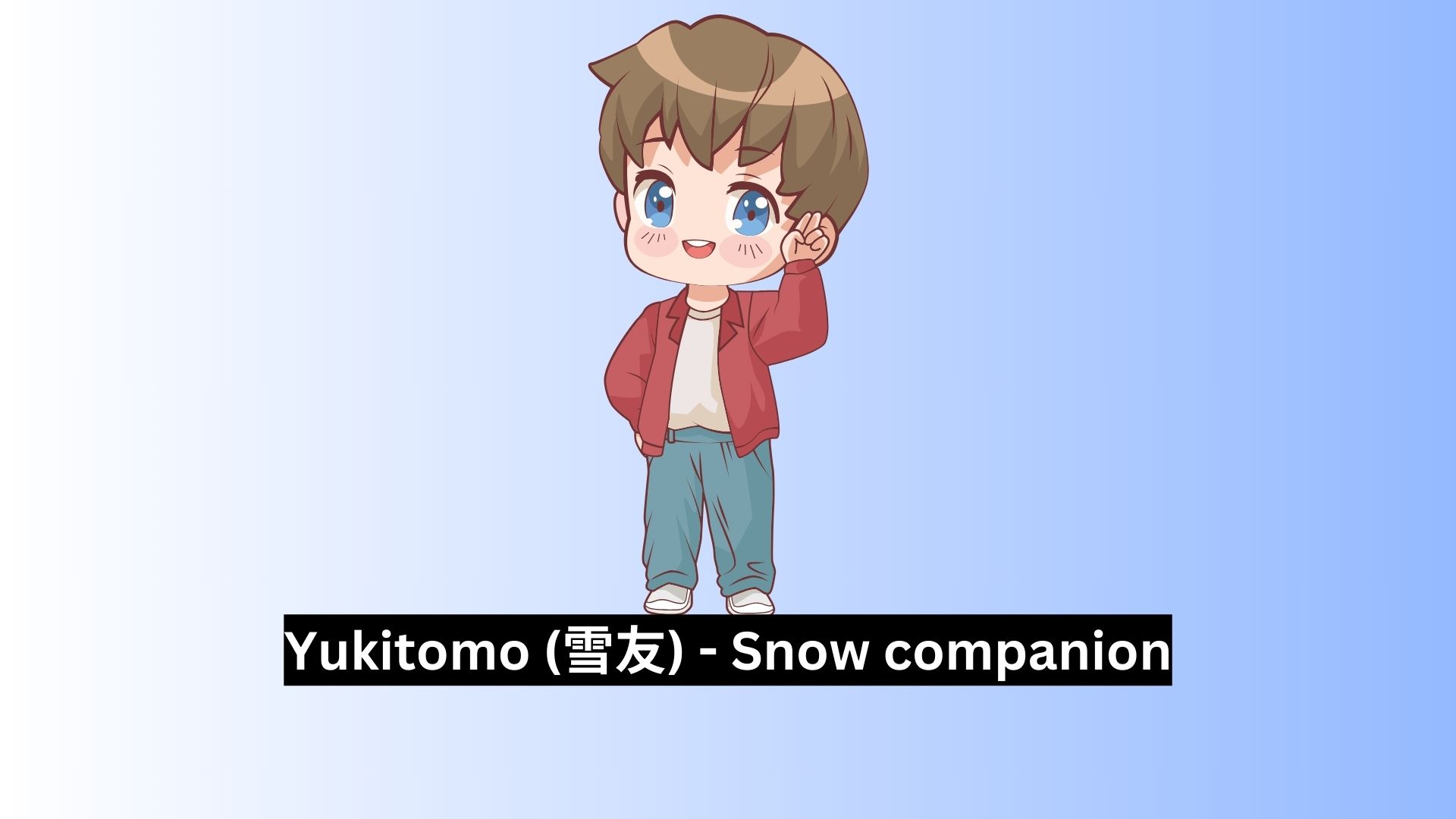
- Yukihiro (雪博) – “Vast snow,” combining “yuki” meaning snow, and “hiro” meaning vast, symbolizing a large expanse of snow.
- Yukiyasu (雪康) – “Peaceful snow,” combining “yuki” meaning snow, and “yasu” meaning peaceful, symbolizing the calmness of snow.
- Yukiaki (雪明) – “Clear snow,” combining “yuki” meaning snow, and “aki” meaning clear, symbolizing the clarity of fresh snow.
- Yukimasa (雪道) – “Snow path,” combining “yuki” meaning snow, and “masa” meaning path, symbolizing a path covered in snow.
- Yukiyuki (雪幸) – “Blessed snow,” combining “yuki” meaning snow, and “yuki” meaning blessed, symbolizing fortunate snow.
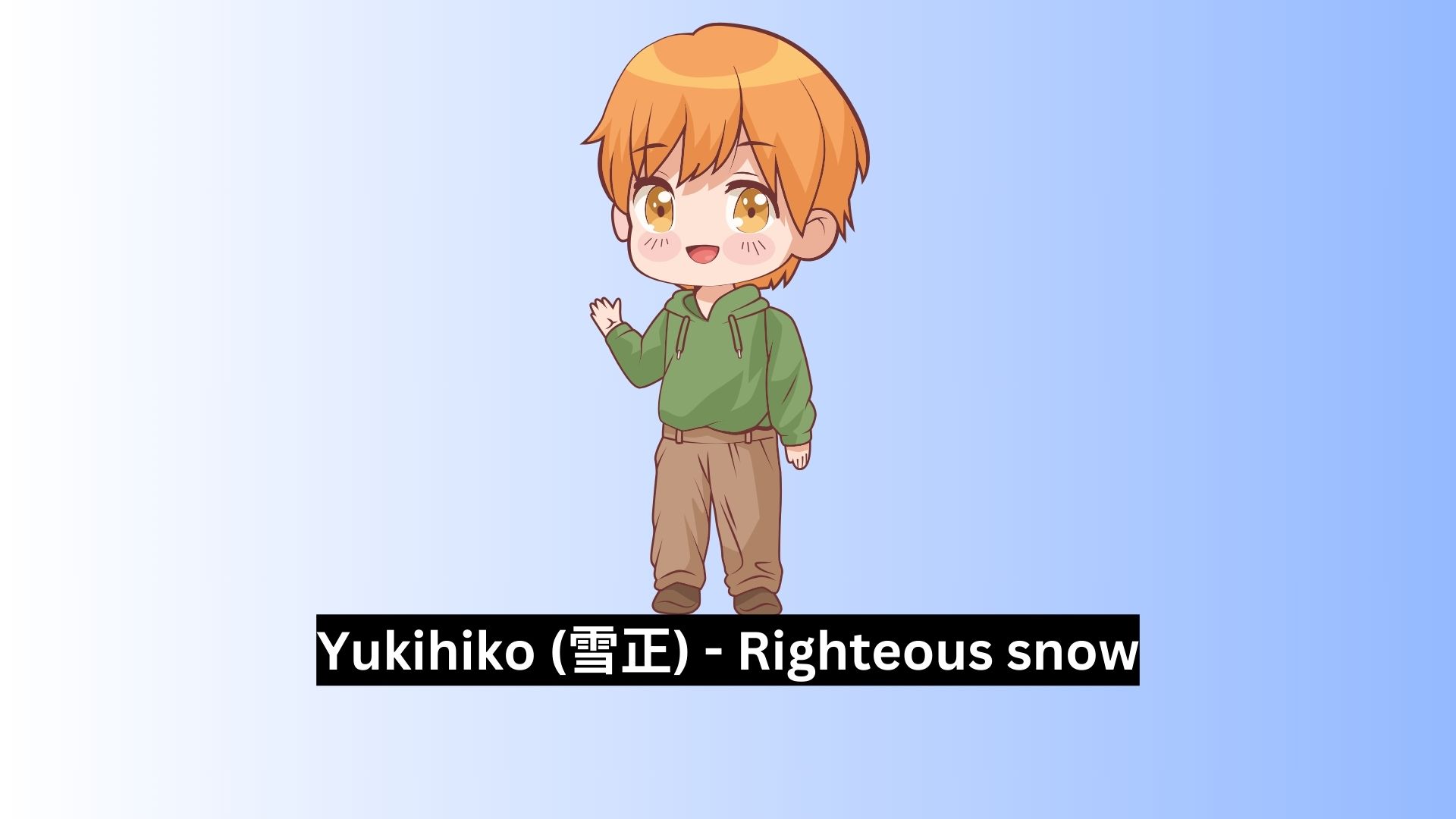
- Yukihiko (雪正) – “Righteous snow,” combining “yuki” meaning snow, and “hiko” meaning righteous, symbolizing a just person connected to snow.
- Yukikiyo (雪清) – “Pure snow,” combining “yuki” meaning snow, and “kiyo” meaning pure, symbolizing the purity of snow.
- Yukihide (雪浩) – “Snow greatness,” combining “yuki” meaning snow, and “hide” meaning greatness, symbolizing the grand nature of snow.
- Yukinori (雪登) – “Snow ascent,” combining “yuki” meaning snow, and “nori” meaning ascent, symbolizing climbing or rising snow.
- Yukitake (雪武) – “Snow warrior,” combining “yuki” meaning snow, and “take” meaning warrior, symbolizing a warrior connected to snow.
- Yukihaya (雪早) – “Early snow,” combining “yuki” meaning snow, and “haya” meaning early, symbolizing the first snow of the season.
- Yukizou (雪蔵) – “Snow treasure,” combining “yuki” meaning snow, and “zou” meaning treasure, symbolizing the preciousness of snow.
- Yukiharu (雪遥) – “Distant snow,” combining “yuki” meaning snow, and “haru” meaning distant, symbolizing snow far away.
Also Read: Beautiful Japanese Names Meaning Moon
Girl Names That Mean Snow
If you’re looking for a special name for your daughter born in winter, consider these Japanese names inspired by snow. Each has a story and meaning. Lastly, ‘Shirayuki’ means white snow. It captures the pure, untouched look of fresh snowfall, offering a sense of new beginnings and untouched potential.
- ukine (雪音) – “Sound of snow,” combining “yuki” meaning snow, and “ne” meaning sound, symbolizing the gentle sound of falling snow.
- Yukinami (雪波) – “Snow wave,” combining “yuki” meaning snow, and “nami” meaning wave, symbolizing the wavelike patterns snow can create.
- Yukimi (雪美) – “Snow beauty,” combining “yuki” meaning snow, and “mi” meaning beauty, symbolizing the beautiful appearance of snow.
- Yukino (雪乃) – “Snowfield,” combining “yuki” meaning snow, and “no” meaning field, symbolizing a vast field covered in snow.
- Yukinojo (雪乃上) – “Snow summit,” combining “yuki” meaning snow, and “jo” meaning summit, symbolizing the top of a snowy mountain.
- Yukisa (雪咲) – “Snow bloom,” combining “yuki” meaning snow, and “sa” meaning bloom, symbolizing flowers blooming in the snow.
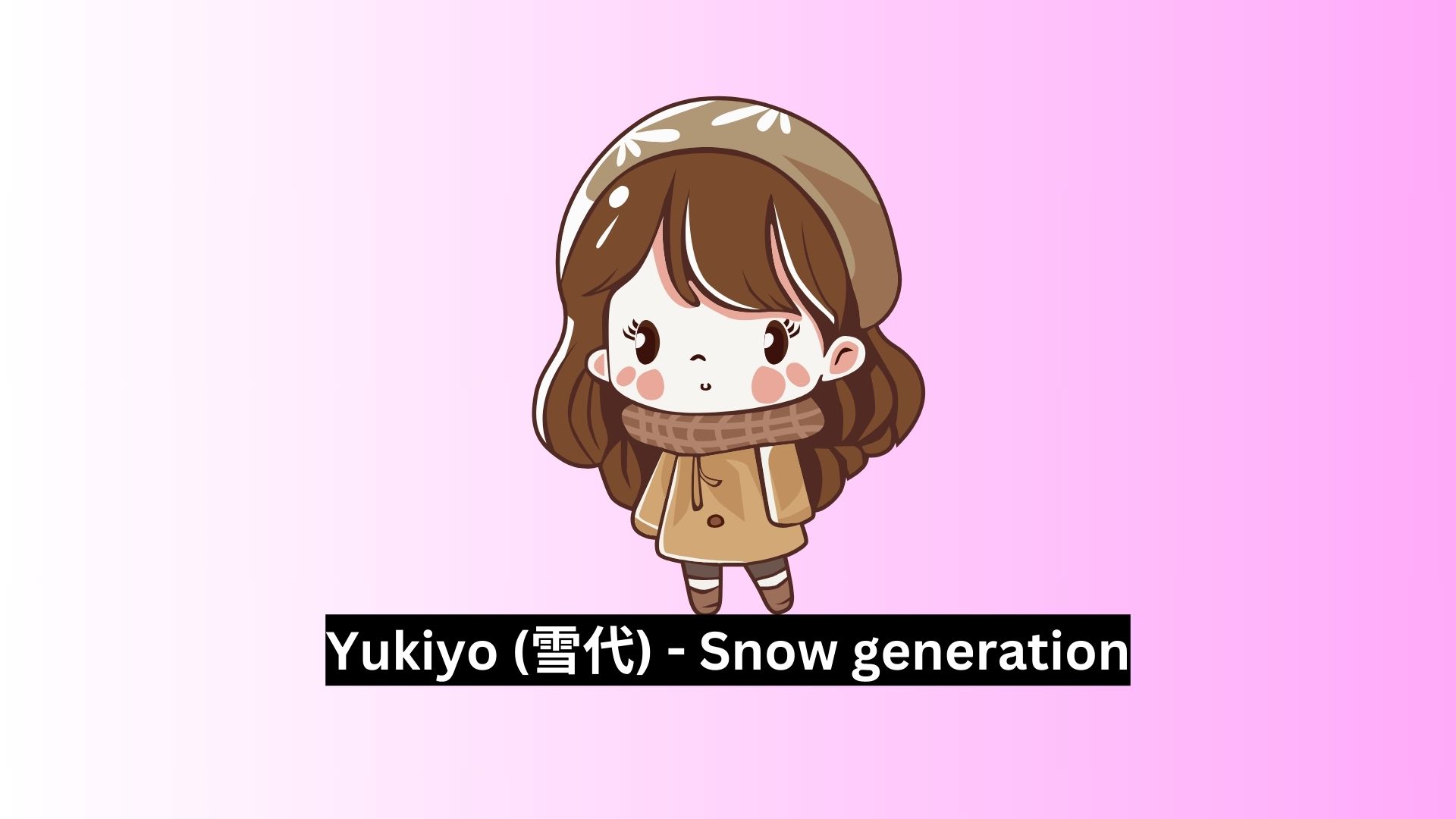
- Yukihime (雪姫) – “Snow princess,” combining “yuki” meaning snow, and “hime” meaning princess, symbolizing a regal figure associated with snow.
- Yukiyo (雪代) – “Snow generation,” combining “yuki” meaning snow, and “yo” meaning generation, symbolizing a generation defined by snow.
- Yukiri (雪梨) – “Snow pear,” combining “yuki” meaning snow, and “ri” meaning pear, symbolizing a pear covered in snow.
- Yukimo (雪萌) – “Snow sprout,” combining “yuki” meaning snow, and “mo” meaning sprout, symbolizing new growth in snowy conditions.
- Yukinari (雪成) – “Snow formation,” combining “yuki” meaning snow, and “nari” meaning formation, symbolizing the way snow forms.
- Yukinao (雪直) – “Honest snow,” combining “yuki” meaning snow, and “nao” meaning honest, symbolizing the straightforward nature of snow.
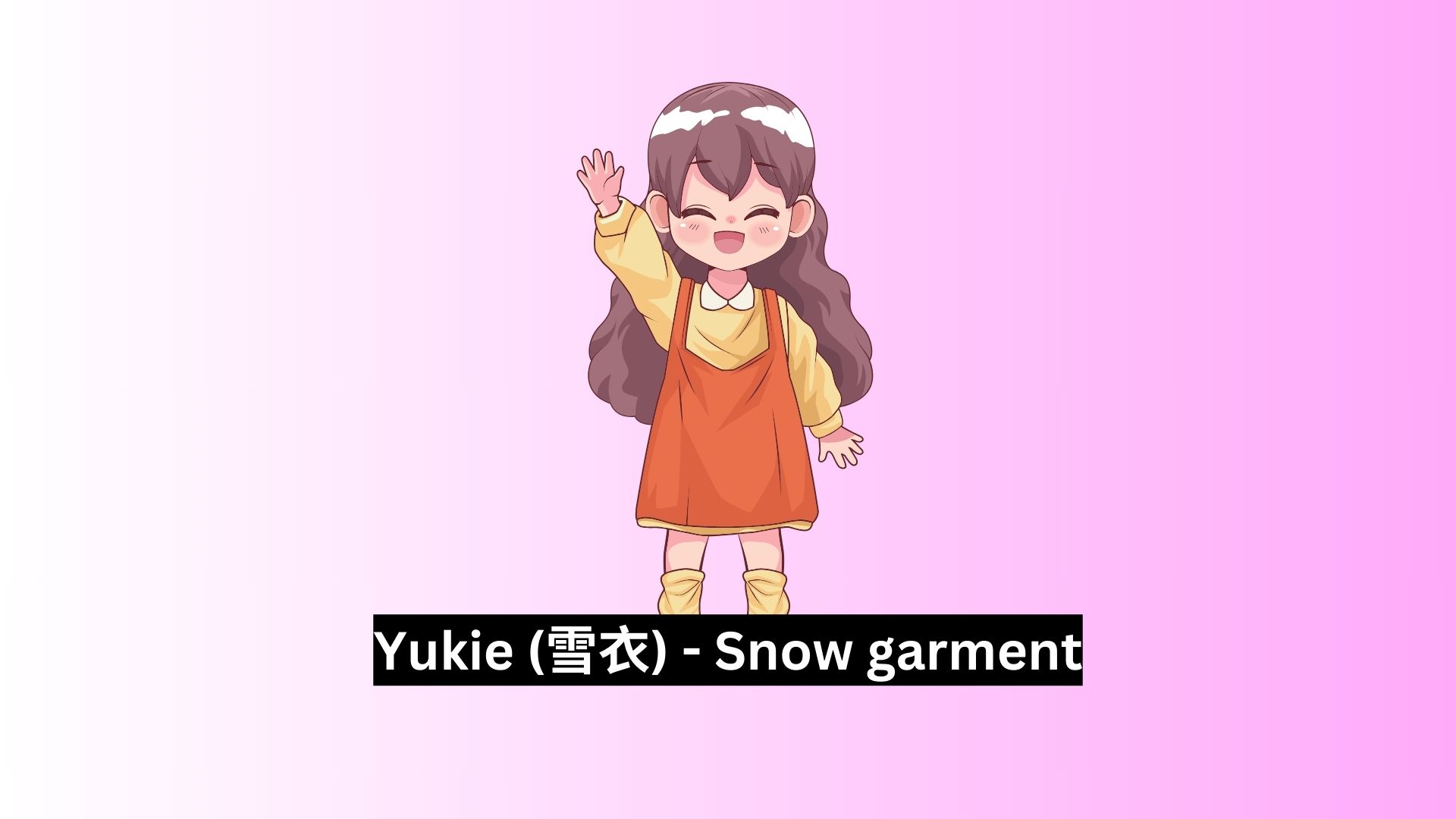
- Yukitama (雪珠) – “Snow pearl,” combining “yuki” meaning snow, and “tama” meaning pearl, symbolizing a precious pearl of snow.
- Yukika (雪香) – “Snow incense,” combining “yuki” meaning snow, and “ka” meaning incense, symbolizing the subtle, pleasant scent of snow.
- Yukie (雪衣) – “Snow garment,” combining “yuki” meaning snow, and “e” meaning garment, symbolizing clothing made from or covered in snow.
- Yukina (雪菜) – “Snow greens,” combining “yuki” meaning snow, and “na” meaning greens, symbolizing plants that thrive in snowy conditions.
- Yukinara (雪奈良) – “Snow serenity,” combining “yuki” meaning snow, and “nara” meaning serenity, symbolizing the calmness of a snowy scene.
- Yukikaze (雪風) – “Snow wind,” combining “yuki” meaning snow, and “kaze” meaning wind, symbolizing a cold, snowy breeze.
- Yuki (雪) – “Snow,” directly means snow, representing the essence of winter.
- Miyuki (美雪) – “Beautiful snow,” combining “mi” meaning beautiful, and “yuki” meaning snow, symbolizing the beauty of snow.
- Shirayuki (白雪) – “White snow,” combining “shira” meaning white, and “yuki” meaning snow, symbolizing pure white snow.
- Sayuki (砂雪) – “Sand snow,” combining “sa” meaning sand, and “yuki” meaning snow, symbolizing snow that resembles or is mixed with sand.
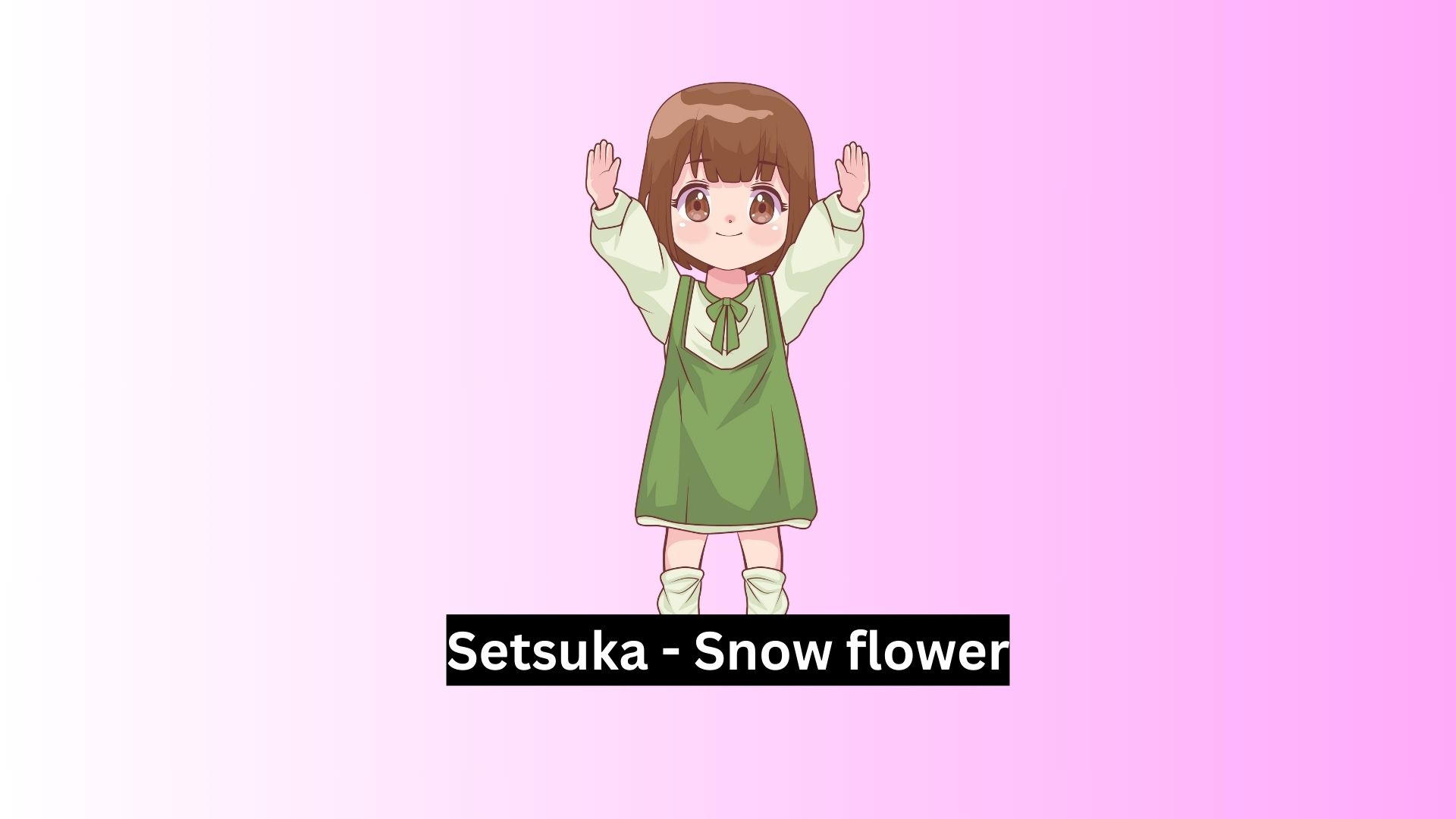
- Yukari (雪村) – “Snow village,” combining “yuki” meaning snow, and “ri” meaning village, symbolizing a village covered in snow.
- Yukiho (雪歩) – “Snow walk,” combining “yuki” meaning snow, and “ho” meaning walk, symbolizing walking through snow.
- Setsuka (雪花) – “Snowflower,” combining “setsu” meaning snow, and “ka” meaning flower, symbolizing a flower blooming in snow.
- Fuyuki (冬雪) – “Winter snow,” combining “fuyu” meaning winter, and “yuki” meaning snow, symbolizing the snow of the winter season.
- Miyoko (美雪子) – “Beautiful snow child,” combining “mi” meaning beautiful, “yuki” meaning snow, and “ko” meaning child, symbolizing a child of beautiful snow.
- Yukiji (雪路) – “Snow path,” combining “yuki” meaning snow, and “ji” meaning path, symbolizing a pathway covered in snow.
- Yuka (雪花) – “Snow flower (alternative),” combining “yuki” meaning snow, and “ka” meaning flower, symbolizing a flower in the snow.
- Yukiko (雪智) – “Snow wisdom,” combining “yuki” meaning snow, and “ko” meaning wisdom, symbolizing the insightful nature of snow.
Also Read: Mythical Ocean Names For Boys And Girls – The Best Ones
Unisex Names That Mean Snow
If you’re looking for a Unisex name for babies born in winter, consider these Japanese names inspired by snow. Each has a story and meaning. Here are unisex Japanese names meaning “snow,”
- Yukiya (雪哉) – “Snow and harmony,” combining “yuki” meaning snow, and “ya” meaning harmony, symbolizing a peaceful and balanced nature connected to snow.
- Yukishiro (雪白) – “White snow,” combining “yuki” meaning snow, and “shiro” meaning white, representing purity and innocence.
- Yukitake (雪武) – “Snow warrior,” combining “yuki” meaning snow, and “take” meaning warrior, symbolizing strength and bravery in snowy conditions.
- Yukinao (雪直) – “Honest snow,” combining “yuki” meaning snow, and “nao” meaning honest, reflecting honesty and integrity.
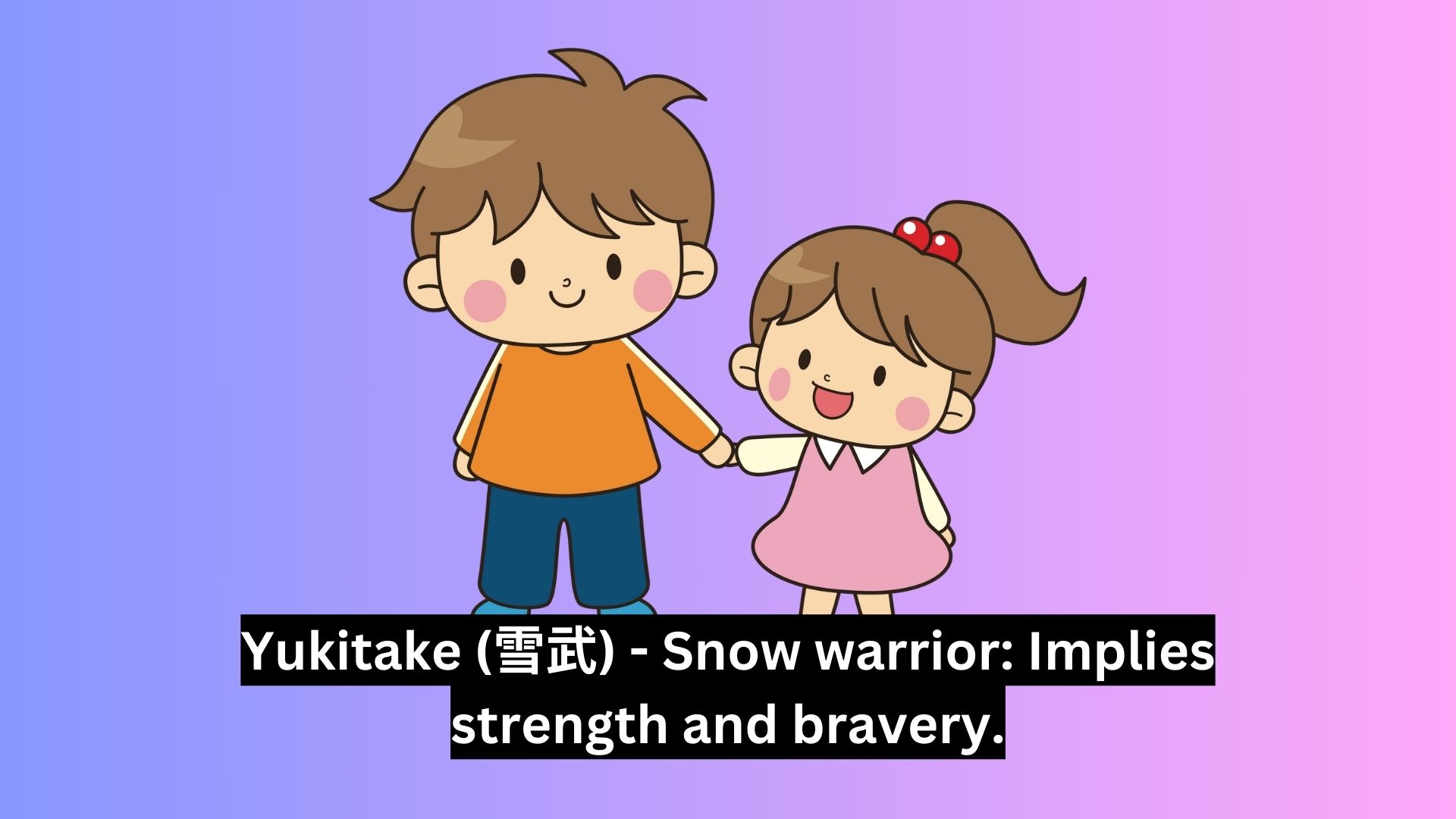
- Yukihaya (雪早) – “Early snow,” combining “yuki” meaning snow, and “haya” meaning early, suggesting a quick and proactive nature.
- Yukizou (雪蔵) – “Snow treasure,” combining “yuki” meaning snow, and “zou” meaning treasure, indicating a precious and valuable character.
- Yukiharu (雪遥) – “Distant snow,” combining “yuki” meaning snow, and “haru” meaning distant, evoking a sense of mystery and allure.
Conclusion
In conclusion, Japanese names related to snow beautifully reflect winter’s essence and symbolism. These names connect deeply with nature and cultural traditions. They’re not just simple labels; they tell stories, showing a deep appreciation for nature’s fleeting beauty, which is key in Japanese culture. Names like Yuki, Shirayuki, and Yukio mirror the calm, purity, and brief moments of snowfall. They carry wishes of purity and new beginnings for the person named. Choosing such a name is like a poetic hope that the child will reflect the elegance and unique charm of winter snow. Keep visiting The Jeep Diva for more interesting content like this.

Fahmea Shorok is a well-traveled writer who focuses on entertainment journalism. Her work reflects her journeys and showcases her flexible writing style. She explores local art scenes wherever she goes, giving her readers a close look at the entertainment found around the world in theaters, movies, and art galleries.

